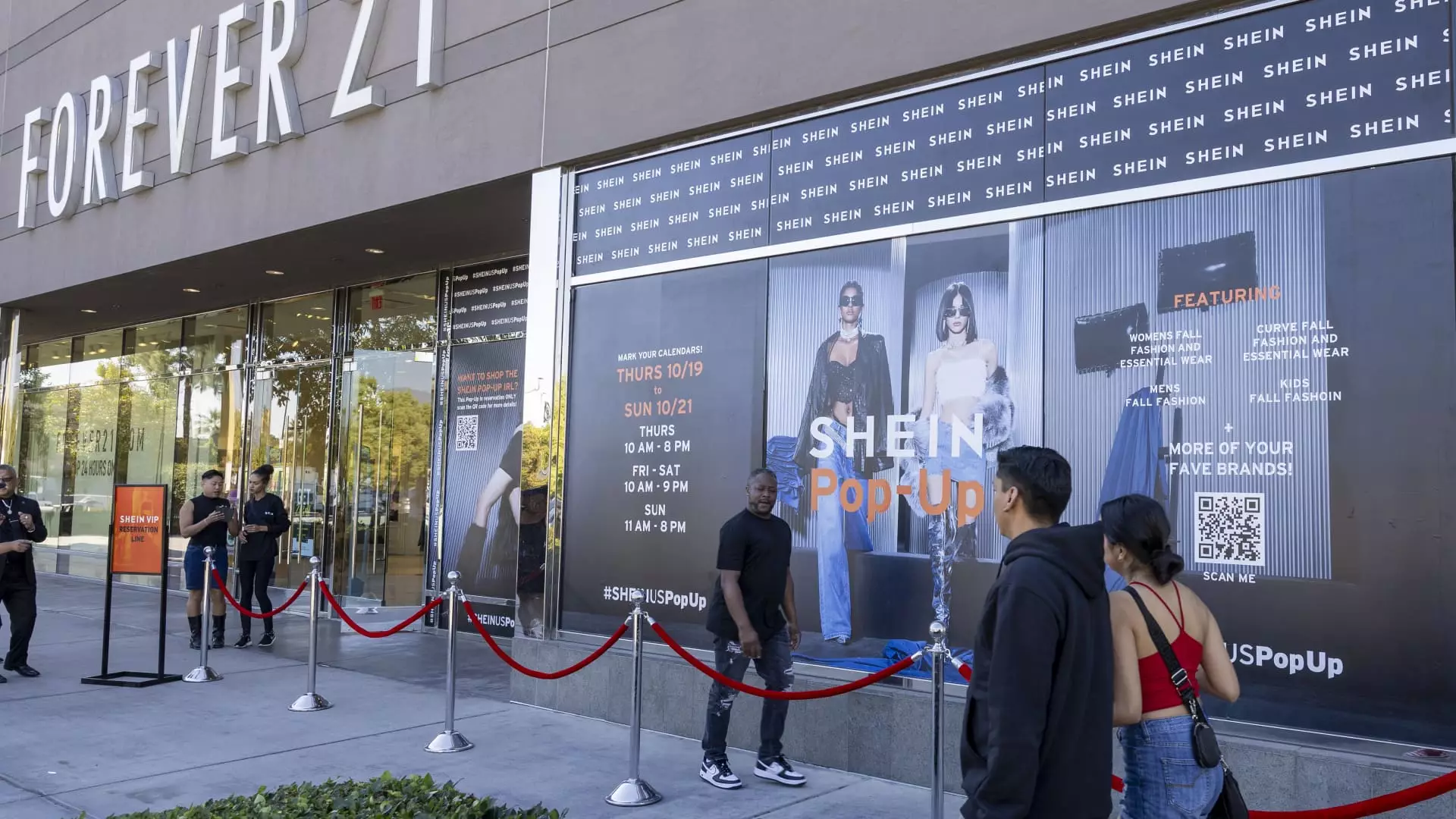Forever 21, a well-known fast-fashion retailer, is currently facing financial difficulties as its sales decline and it struggles to keep up with more competitive rivals. In recent developments, the company has requested some of its landlords to reduce its rent by up to 50% in order to alleviate financial strain. This move comes as the company attempts to restructure its leases and cut costs amid challenging market conditions.
The fast-fashion industry, in which Forever 21 operates, has become increasingly saturated, posing a significant challenge for the company. In addition to market saturation, the retailer has also struggled with managing inventory effectively and understanding the needs and preferences of its consumers. These issues have compounded the company’s financial woes and have made it difficult for it to compete effectively with its more nimble competitors.
Forever 21’s financial struggles are not new. The company previously filed for bankruptcy protection in 2019, leading to a restructuring of its operations. Following the bankruptcy filing, the brand was acquired by a consortium that included Authentic Brands Group and major landlords Simon Property Group and Brookfield Property Partners. Despite these efforts, the retailer has continued to face challenges in its operations and financial performance.
The financial difficulties faced by Forever 21 have also had an impact on Sparc Group, the joint venture that operates the retailer’s operations. Sparc Group, which includes Authentic Brands Group, Simon Property Group, and more recently, Chinese-linked fast-fashion giant Shein, has faced its own challenges as it strives to integrate various legacy brands under its umbrella. The need to centralize teams, technology, marketing, and supply chains has been a significant hurdle for Sparc Group.
One concerning aspect of Forever 21’s financial situation is its pattern of consistently paying vendors late. According to data from Creditsafe, the retailer has frequently delayed payments to its vendors, with some bills going more than 70 days past due. Late payments can signal broader financial difficulties and have the potential to strain relationships with suppliers and partners. This pattern of late payments has added to the retailer’s financial woes.
Forever 21, once a dominant player in the fast-fashion market, now faces stiff competition from newer, ultra-fast-fashion retailers like Shein and Temu. These digital-first companies have leveraged advanced supply chain capabilities and on-demand manufacturing to quickly respond to changing trends and consumer demands. The speed and agility of these competitors have posed significant challenges for Forever 21 and other traditional retailers.
In an effort to address its competitive challenges, Forever 21 has formed a partnership with Shein, one of its main rivals. Under the agreement, Shein will design, manufacture, and distribute a line of co-branded Forever 21 apparel and accessories. Additionally, Shein has acquired a stake in Sparc Group, while Sparc has taken a minority stake in Shein. This partnership aims to leverage the strengths of both companies to drive foot traffic and sales for Forever 21.
As Forever 21 navigates its current financial challenges, questions remain about its long-term prospects in the fast-fashion market. While the partnership with Shein may offer some relief, the retailer must address its underlying operational and financial issues to remain competitive. The company’s struggles underscore the broader challenges facing traditional retailers in a rapidly evolving industry landscape.

